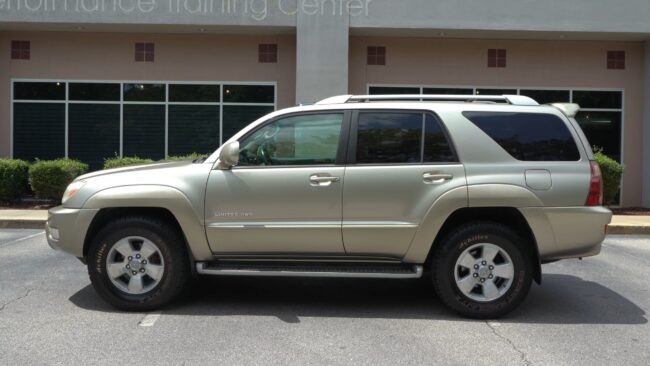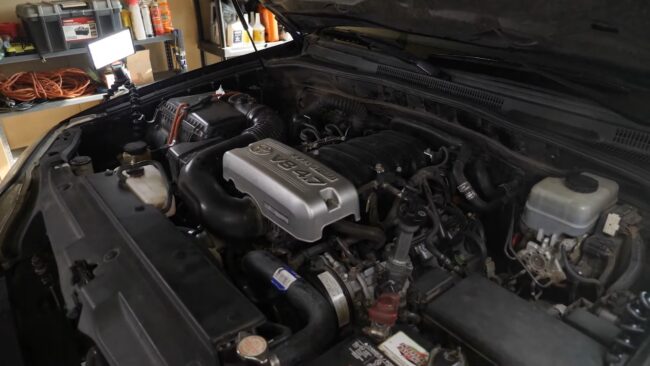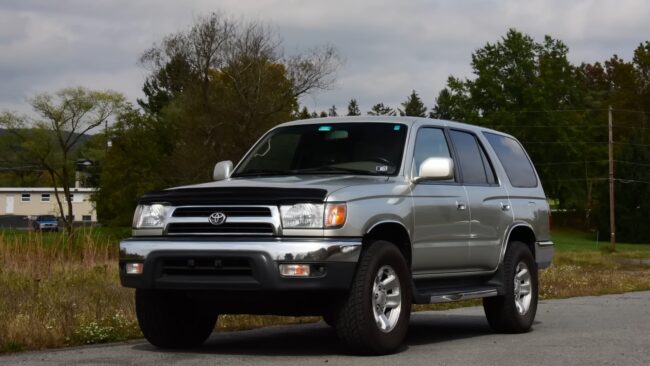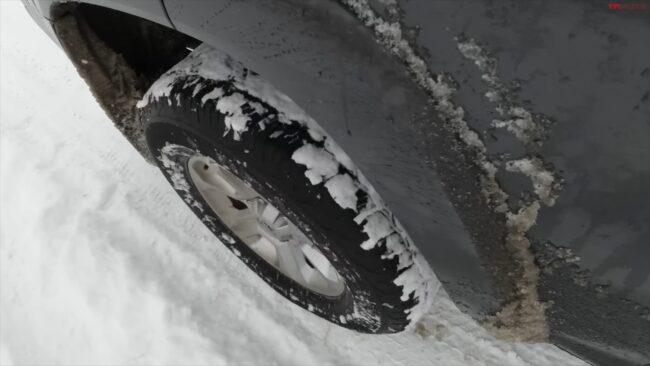Toyota 4Runner entered the market back in 1984 and has successfully portrayed its versatility to its target market.
It has gained immense popularity among those who wanted something more from a car than just a medium of traveling. This car’s hard-wearing and sturdy outlook has made many people fall for it.
But just like any vehicle, not all model years are created equal. Some 4Runner years have earned a reputation for their exceptional performance and durability, while others may leave you wishing you had made a different choice.
In this article, we’ll take a look at the 5 best and worst years for this car, helping you make an informed decision if you’re considering joining the proud 4Runner family or upgrading your current ride.
TABLE OF CONTENTS
Which Years Should You Steer Clear of
Even though the Toyota 4Runner is a revolutionary model, it has experienced several problematic years:
- 1995
- 2003
- 2005
- 2014
- 2015
1. 1995 Toyota 4Runner

After some research, I found out that the first few years of the Toyota 4Runner like 1995 were not in its favor.
Customers were constantly complaining about the rusting of various internal components of the car. These cars belong to the second generation of Toyota 4Runner.
Apart from that, the engines were reported to have issues with their head gasket.
Even after the engines were repaired, the same issues were reported a few weeks or months later.
After all of this, when the car was used for a few months, the car’s suspension used to decrease.
Drivers complained about losing control of the steering of their cars; this then reduced the reliability of this model.
2. 2003

The 2003 Toyota 4Runner was one of those models that received the highest complaints. The main issue was rust.
It was not fit for driving during winter because salt was used to melt the snow on the roads. This caused the rusting of internal and external components.
The rusting issue made the car unsafe to drive. If the car was taken out for repair, the mechanic used to hand over a hefty amount of bill to you. The maintenance of this car is hence difficult.
The issue got so bad that several car accidents were reported as the brakes failed and the steering stiffened. The driver tends to lose control of the car.
Lastly, in my opinion, the seats of this car are not comfortable either, which leads to body pain after hours of traveling.
3. 2005

These cars belong to the fourth generation of Toyota 4Runners.
They are said to be the most unsafe cars to drive out of all the models of Toyota 4Runner that came into the market.
The issue of rust was not resolved in this model either. It got so bad that the car’s exterior used to show signs of rusting at a very early stage.
The repair and maintenance cost of this car kept emptying the pockets of its users.
Around 400 complaints were registered about the head gasket of this car as well. This means the drivers were not experiencing a comfortable drive with this car.
Finally, I’d say the dashboard is something someone hardly pays attention to, but that was also faulty in this mode.
4. 2014
Surprisingly, customers did not complain about rust in this 2014 model.
The customers also reported several electric problems. Your sound system can give up on you at any point because of this, and so can your doors.
Another issue the customers experienced was that when they stopped their cars at a traffic signal, it used to give up on them.
Their entire operating system used to stop working. They had to call a mechanic to fix the electric wires inside of it to start the car again.
The speed of this car cannot take you beyond 70mph because then the car would start to vibrate, and you can hear loud noises.
Lastly, I am pretty sure it is not suitable for a drive in rainy weather as well.
5. 2015

The main issue with this 2015 Toyota 4Runner model lies within its infotainment center.
Imagine having to drive without it when you cannot even see your driving speed.
The sound system of this model is also not satisfying enough because the Bluetooth does not seem to connect. You might have to restart your car every time you try to use the radio.
Drivers can also lose control of this model because when you apply brakes on this car, the steering gets out of control, and it takes a lot of manual power to regain control.
Which Model Years Should You Consider?
A car as spearheaded as the Toyota 4Runner has faced many successful years throughout its journey:
- 2000
- 2006
- 2008
- 2013
- 2017
1. 2000

In my opinion, this 2000 model of Toyota 4Runner is one of the best ones.
This is because this model experienced a lot of redesigning and remodeling as the models before it faced a lot of backlash from the audience.
Another reason why this model gained a lot of popularity was that the transmission changed.
The manual car became automatic, and the buyers were really happy about it. Out of all the models, this one also has the lowest maintenance cost.
Furthermore, I think this car is also safe and perfect enough for you if you have a big family.
You would not have to take extra care of this one like the other models. The 4WD of this car is another reason to buy it in my opinion.
2. 2006
Looking for a car with high reliability and satisfaction to offer its customers?
This 2006 model of Toyota 4Runner is the solution you are seeking. This model belongs to the fourth generation.
The customer complained about the issue of rust and loud vibration noises. All these issues have been fixed in this model and this is why I have listed this model here.
It provides a comfortable ride throughout. The off-road capability of this car is also high, which means that you can travel to any place with it.
The seats of this car are quite comfortable, and the tall body makes the SUV look quite spacious from the inside.
Moreover, the interior of this car is quite aesthetic to look at.
3. 2008

This Toyota 4Runner model’s on and off-road capability is quite satisfying for the users.
The driver does not have to exert manual power to take control of the car while driving off-road.
The seats are also quite comfortable, and those who purchase this car often travel.
They would not experience body aches after traveling in it for a few hours. The V6 engine of this car is built to complement its rugged personality.
This car’s horsepower ranges from 236-260, which is commendable as the competitors have the lower horsepower to offer in their SUVs.
This car has also passed several reliability tests, making it safe to drive.
4. 2013
Where other models of Toyota 4Runner were heavy on fuel, the 2013 model found a solution for it.
The fuel economy is budget-friendly for this car, so you do not have to worry about rising petrol rates. This was another year in favor of Toyota 4runner.
The off-road capability of this car is higher than its competitors, which is a strong selling point of this car.
They redesigned the car to be more rugged and sturdy. There is no doubt in the fact that they were able to portray that brand image to the customers.
This model of Toyota 4Runner provides you with quite a comfortable ride as all the controls are within your reach.
These controls are also not complex, so you do not have to worry about connecting to Bluetooth while driving.
5. 2017
The first and foremost advantage of buying this model is that you can get it at a rate cheaper than what its competitors are asking.
The infotainment system of many models of Toyota 4Runner has reported different issues. However, in their 2017 Toyota 4Runner model, this issue has been taken care of.
The redesigned infotainment system is quite eye-catching in this car. This made the car more responsive to its users and was quite easy to use.
I think one should definitely consider purchasing it because it offers the best off-road driving experience and is perfect for traveling with your family.
The high level of security and reliability it has to offer cannot be missed out on.
How to Maintain Your Toyota 4Runner?
Engine Care
Regular oil and filter changes are the lifeblood of your 4Runner. It’s important to follow the manufacturer’s recommended schedule for oil changes, typically every 5,000 to 7,500 miles.
Additionally, keeping an eye on engine fluids such as coolant, transmission fluid, and brake fluid is essential for smooth operation.
Tire Maintenance
Tire care is critical for safety and vehicle performance. Regular tire rotations, typically every 5,000 to 7,500 miles, ensure even tire wear.
It’s also important to maintain proper tire pressure, as indicated in your 4Runner’s manual, to improve fuel efficiency and reduce tire wear.
Brake System
Regular inspection of brake pads and rotors is necessary, and they should be replaced if they show signs of excessive wear.
Additionally, brake fluid should be checked and replaced according to the vehicle’s maintenance schedule.
Seasonal Maintenance Tips
Preparing for Winter

Before winter sets in, check your antifreeze levels and battery health. In areas with severe winter conditions, consider using winter tires for improved traction. Also, ensure your heater and defroster are functioning correctly.
Summer Readiness
In summer, your 4Runner’s cooling system becomes crucial. Check the coolant level and condition. Preparing for higher temperatures and potentially long trips also involves checking the air conditioning system for optimal performance.
DIY Maintenance Vs. Professional Services
Basic maintenance tasks like oil changes, air filter replacements, and tire rotations can be done at home with the right tools and knowledge. Many resources are available for 4Runner owners who wish to undertake these tasks themselves.
When to Seek Professional Help
For more complex tasks or if you’re unsure about a particular maintenance activity, seeking professional help is advisable. Regular professional inspections can catch issues that might be missed otherwise.
FAQs
What are the common symptoms indicating a head gasket issue in a Toyota 4Runner?
Common symptoms of a head gasket issue in a Toyota 4Runner include overheating of the engine, white smoke from the exhaust, loss of coolant without visible leaks, and the presence of coolant in the engine oil, indicated by a milky substance on the dipstick.
Can modifications to a Toyota 4Runner affect its reliability?
Yes, modifications can affect the reliability of a Toyota 4Runner. Aftermarket parts and modifications, especially those not specifically designed for the 4Runner or installed improperly, can lead to increased wear and tear, potential compatibility issues, and might void the warranty.
How does the Toyota 4Runner perform in off-road conditions?
The Toyota 4Runner is known for its strong off-road capabilities. It typically features robust suspension, adequate ground clearance, and a sturdy build, making it suitable for various off-road conditions. However, performance can vary based on the specific model and its features.
What are the key maintenance tips to extend the lifespan of a Toyota 4Runner?
Key maintenance tips include regular oil and filter changes, maintaining proper tire pressure and rotation, checking and replacing brake pads and fluids as needed, and following the manufacturer’s recommended maintenance schedule.
Seasonal checks and addressing any minor issues promptly also help in extending its lifespan.
Are there any specific years of the Toyota 4Runner known for excellent fuel economy?
While the Toyota 4Runner is generally not known for outstanding fuel economy due to its design and weight, some newer models, like the 2013 model, have made improvements in fuel efficiency.
It’s advisable to research specific model years for detailed fuel economy ratings.
Summary
In the world of SUVs, the Toyota 4Runner has left an indelible mark, and knowing which years shine and which ones stumble can make all the difference in your driving experience.
From the early classics to the modern marvels, we’ve taken you through the journey of the 4Runner’s best and worst years.
Armed with this knowledge, you can confidently embark on your quest to find the perfect 4Runner, ensuring that your next adventure is backed by a reliable and capable companion on four wheels.
References:
https://www.4runners.com/threads/bad-4runner-years.1007/
https://www.surecritic.com/vehicles/reviews/toyota/4runner/2005
https://www.consumerreports.org/cars/toyota/4runner/2003/reliability/




